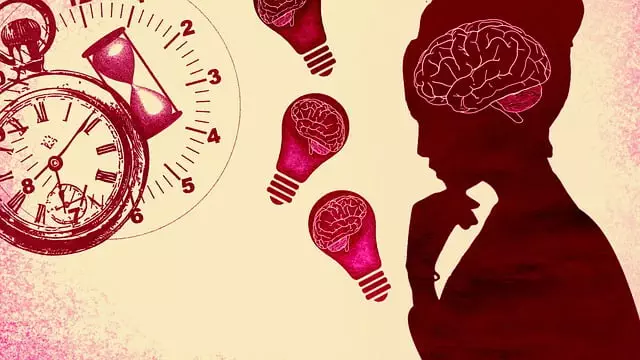The media significantly influences public perceptions about mental health, with accurate and sensitive portrayals reducing stigma. Initiatives like the Kaiser Permanente mental health number in Boulder emphasize open dialogue and accessible resources. Responsible media coverage, alongside supportive services, fosters understanding and coping skills within affected communities. Kaiser Permanente's "Boulder Experience" combines community outreach, mental wellness journaling, and public awareness campaigns to destigmatize mental illness and empower individuals.
Mental illness representation in media significantly influences public perception and understanding of mental health. This article explores how inaccurate or limited portrayals can perpetuate stigma, while examining successful initiatives like Kaiser Permanente’s efforts to address this gap. We delve into strategies for more accurate and empathetic mental illness depictions, highlighting the community-driven approach taken by Boulder, Colorado, as a model for positive change. By increasing awareness and promoting understanding, these initiatives aim to improve support systems for those facing mental health challenges.
- Understanding the Impact of Media Portrayal on Mental Health Perception
- Kaiser Permanente's Initiative: Addressing the Gap in Representation
- Strategies for Accurate and Empathic Mental Illness Depictions in Media
- The Boulder Experience: A Community-Driven Approach to Positive Change
Understanding the Impact of Media Portrayal on Mental Health Perception

The media plays a significant role in shaping public perceptions about mental health. Portrayals of individuals with mental illness in films, television shows, and news coverage can either perpetuate harmful stereotypes or foster understanding and empathy. When media depicts mental illness accurately and sensitively, it can help reduce stigma and promote positive attitudes towards those struggling with their mental well-being. This is crucial because accurate representation enables folks to recognize their own experiences or those of loved ones, encouraging them to seek help without fear of judgment.
For instance, initiatives like the Kaiser Permanente Mental Health Number in Boulder emphasize the importance of open dialogue and access to resources by providing a dedicated support line. Such efforts underscore the need for responsible media coverage that reflects the reality of mental health challenges. By promoting accurate portrayals and supporting accessible services, we can collectively contribute to the development of coping skills and inner strength among individuals facing mental health issues, ultimately enhancing mental health awareness and overall well-being in communities.
Kaiser Permanente's Initiative: Addressing the Gap in Representation

Kaiser Permanente, recognizing the importance of accurate representation, has taken a significant step forward with their initiative to address the gap in mental health storytelling. This program aims to showcase diverse narratives and promote understanding by highlighting real-life experiences of individuals grappling with various mental health challenges. By doing so, they strive to foster confidence boosting and emotional regulation through authentic representations.
The initiative focuses on public awareness campaigns development, utilizing resources and expertise to create compelling content that educates the public about the complexities of mental illness. Through this effort, Kaiser Permanente seeks to dispel myths and reduce the stigma associated with seeking help, ultimately encouraging those in need to reach out for support. This proactive approach is a welcome change, especially considering the Kaiser Permanente mental health number in Boulder has been working tirelessly to support residents dealing with these issues.
Strategies for Accurate and Empathic Mental Illness Depictions in Media

Media has a significant role in shaping public understanding of mental illness. To foster accurate and empathetic representations, creators should prioritize consultation with mental health professionals to ensure diagnoses and symptoms are portrayed correctly. Incorporating diverse perspectives from individuals living with various mental health conditions is crucial for authenticity. This can involve casting actors who have personal experiences or collaborating with support groups and community organizations like Kaiser Permanente, which offers valuable insights into real-world challenges and resources.
Additionally, media platforms can contribute to Mental Illness Stigma Reduction Efforts by presenting balanced narratives that humanize individuals with mental health conditions. Portraying characters in their complexities, showing coping strategies, and highlighting recovery journeys (without romanticizing or sensationalizing) can help foster understanding and empathy. Community Outreach Program Implementation through partnerships with mental health organizations ensures content remains relevant and beneficial to viewers. Encouraging open dialogue about mental health, coupled with the provision of accessible resources like the Kaiser Permanente mental health number in Boulder, can empower viewers to seek help when needed while fostering a more supportive society.
The Boulder Experience: A Community-Driven Approach to Positive Change

In Boulder, a unique community-driven approach has emerged to challenge negative representations of mental illness in media and foster positive change. The “Boulder Experience” is an initiative that leverages the power of collective action and support networks to empower individuals grappling with mental health issues. By fostering open dialogues and providing accessible resources like the Kaiser Permanente mental health number, Boulder’s community leaders aim to destigmatize mental illness while promoting coping skills development. This holistic strategy includes mental wellness journaling exercises guided by local experts, ensuring that residents have practical tools for navigating their mental health journeys. Furthermore, the Boulder Experience extends beyond individual support, focusing on broader mental illness stigma reduction efforts through public awareness campaigns and community engagement activities.
Mental illness representation in media has a profound impact on public perception and access to support. By examining the adverse effects of negative stereotypes and insufficient portrayals, we can appreciate the initiative taken by organizations like Kaiser Permanente to address this gap. Their efforts, coupled with community-driven approaches like The Boulder Experience, showcase promising strategies for accurate and empathic mental illness depictions. This collective movement not only challenges existing narratives but also fosters a more inclusive and supportive society, ultimately encouraging open conversations about mental health. To learn more about available resources, contact Kaiser Permanente’s dedicated mental health number and explore how positive media representations can drive meaningful change on a local level, as exemplified by Boulder’s success story.






